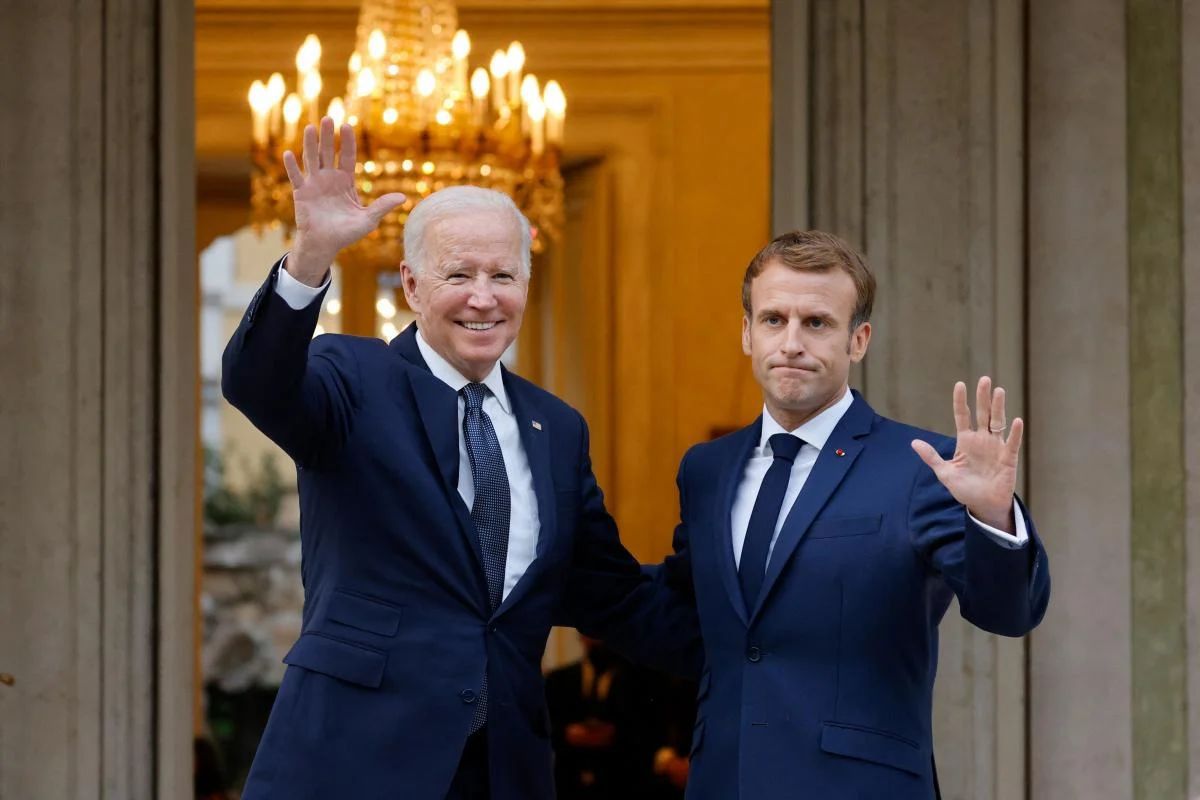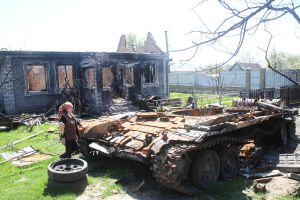Jen Psaki, the press secretary of the White House, noted at a briefing on January 9.
The presidents discussed the talks Emmanuel Macron held in Moscow and Kyiv on February 7-8. The leaders reaffirmed their commitment to continue diplomacy to settle the crisis on the Russian-Ukrainian border and to restrain Moscow.
When asked whether the United States shares the measured optimism of France about Putin’s readiness to de-escalate, the press secretary said, “We’re looking at actions here, and we have not seen de-escalatory actions by the Russians.”
After talks in Moscow, the French leader emphasized that the next few weeks would be important for de-escalation in Eastern Europe.
The French and the Russian presidents reaffirmed the need to continue a dialog to reach progress in the implementation of the Minsk agreements. Putin once again reiterated the importance of NATO’s non-expansion eastward and warned Ukrainian President Volodymyr Zelenskyy how he should act in the future.
While speaking with French reporters, Vladimir Putin asked them directly whether they want to fight Russia if Ukraine joins NATO. The leader of the Kremlin is convinced that once Ukraine becomes a member of the Alliance it will try to use military force to return the Crimea.
Nevertheless, during his meeting with Zelenskyy in Kyiv, President Macron noted that the head of the Kremlin was ready to de-escalation. But the U.S. State Department does not share the optimism of the French leader.
More than that, NATO points out to the growing number of Russian troops on the border with Ukraine.
Because of the lack of detailed information about proposals Macron made in Moscow during the talks with President Putin, rumours begin to circulate in the Western press about some secret agreement between France and Russia regarding guarantees that Ukraine would not be admitted to NATO.
In this respect, Foreign Minister of Ukraine Dmytro Kuleba said that the issue of Ukraine’s abandoning its Euro-Atlantic plans had not been raised at the meeting with Macron in Kyiv. “President Macron came with thoughts and not proposals. During the talks we sought to determine the limits of admissible compromises in order to break the stalemate. It was a discussion of ideas and not proposals,” Kuleba said.
According to the Ukrainian Foreign Minister, President Macron did not try to persuade the official Kyiv to implement the Minsk agreements on Russian conditions. Kuleba stressed that Ukraine was not going to fulfil these agreements on conditions offered by Russia.
“This does not mean, however, that we refuse to implement the Minsk agreements in principle. But we will not implement them on the Russian terms, in the Russian interpretation, particularly through a direct dialog with the so-called LNR and DNR on which Moscow insists. This is our principled position,” the minister explained.
According to the minister, the basic scenario Ukraine considers is to force Moscow to reduce tensions, withdraw troops from the border and the temporarily occupied territories and to unblock the work of the Trilateral Contact Group.
Kuleba concluded, “And for Russia, it is the other way around. Its basic scenario is to continue escalating the situation to destabilize Ukraine. It would be perfect for them to achieve the destabilization of the situation in Ukraine without actually resorting to military force but only threatening to use it.”
The newspaper Voice of Ukraine






